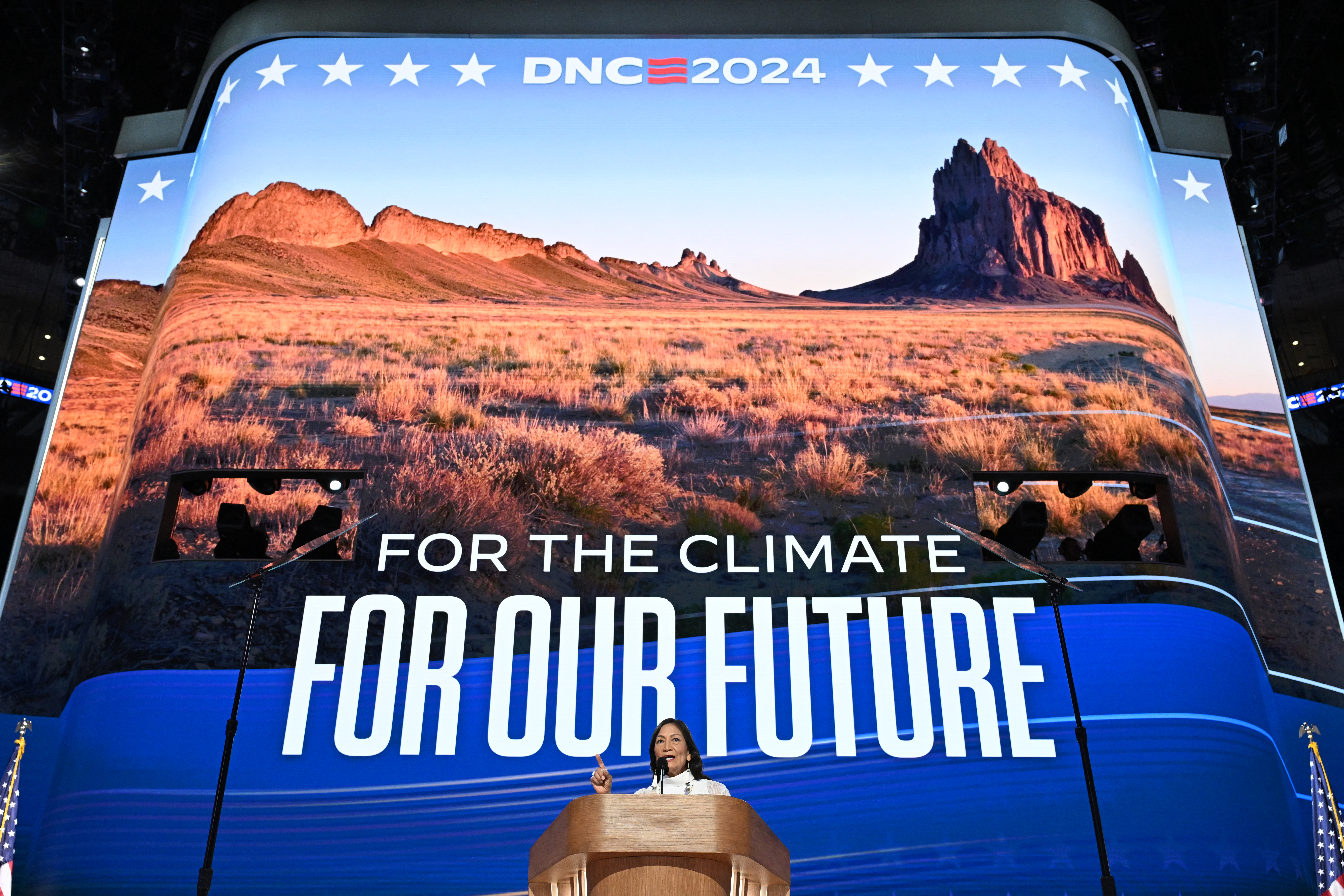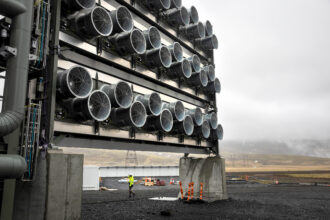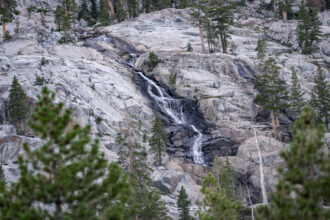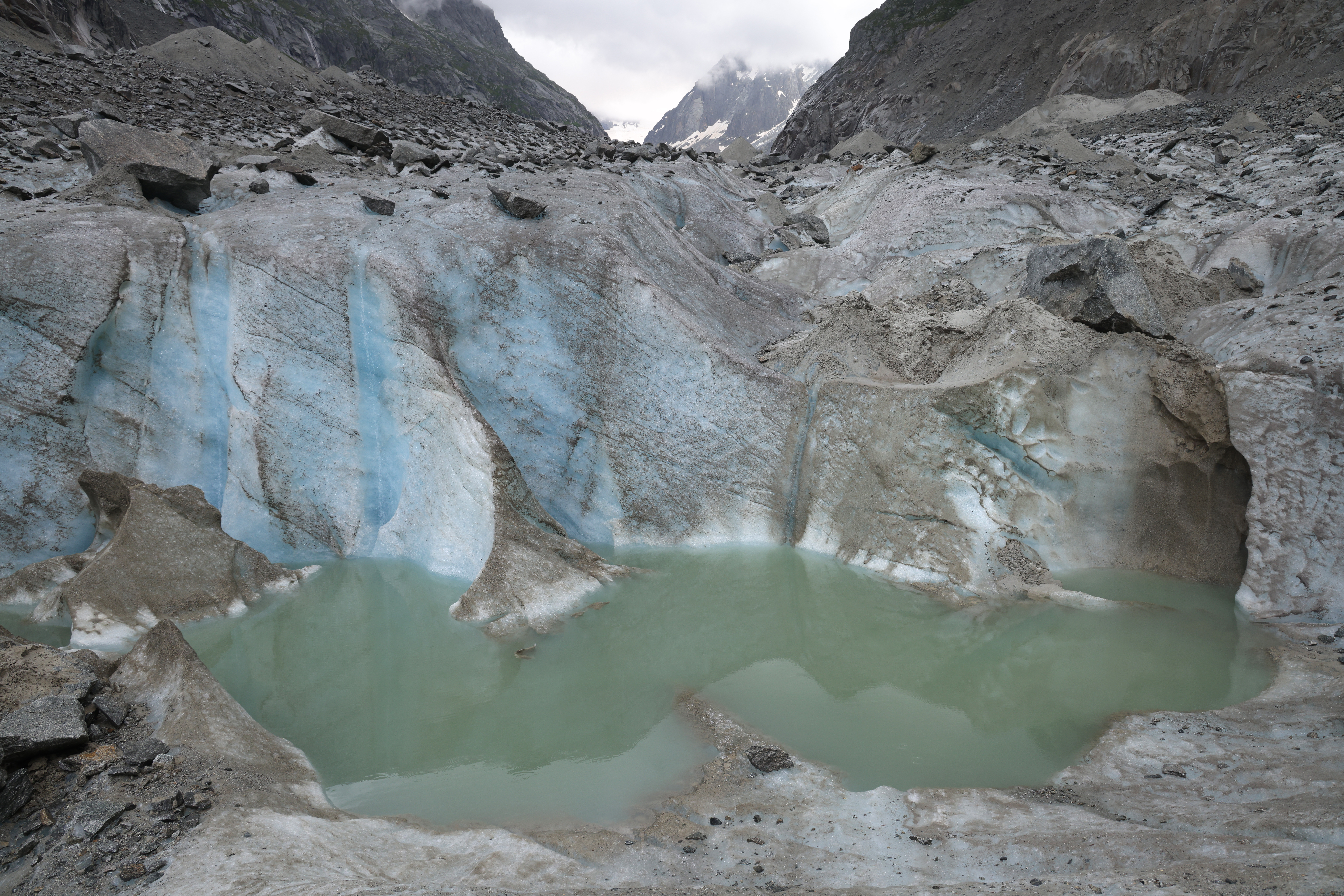Climate change finally got its moment on the last night of the Democratic National Convention in Chicago yesterday. After a few days without much talk of emissions, several marquee speakers, including U.S. Interior Secretary Deb Haaland, dedicated large portions of their speeches to the pressing threat global warming poses to humanity.
But there were a few notable exceptions in this climate push: Vice President Kamala Harris and her running mate, Minnesota Gov. Tim Walz. Beyond a passing reference, both politicians avoided the topic, a trend across their campaign.
While some advocates are pressing for more climate conversations, others are OK with this climate-lite campaigning approach—for now.
What Happened at the DNC? The first two days in Chicago had a few scattered events on climate change, including an all-female panel hosted by comedian Julia Louis-Dreyfus, who showed her support for Harris after playing a fictional vice president herself on the show Veep.
The actress then introduced Transportation Secretary Pete Buttigieg, who said the country needs to continue working on the Inflation Reduction Act, which is channeling billions of dollars into the clean energy transition. Earlier this week, the Democratic Party also officially approved its 2024 platform, which includes an entire chapter on climate action. (I wrote about this in Tuesday’s newsletter, if you would like to read more.)
Climate messaging steadily ramped up as the week went on, peaking during last night’s programming. Haaland took to the stage to share her own experiences in nature while growing up in New Mexico as a member of the Pueblo of Laguna tribe. She stressed the need to elect a president who knows the importance of protecting the planet for future generations, and said that “Donald Trump never learned that lesson.”
“An American president must lead the world in tackling climate change,” Haaland added. “Kamala Harris understands that assignment.”
In his speech, U.S. Rep. Maxwell Frost of Florida discussed how climate impacts—from deadly storms and hurricanes to extreme heat—are already hammering the people of his state. Earlier in August, Tropical Storm Debby pummeled Florida with torrential downpours and high winds that killed at least five people.
Frost made history in 2023 by becoming the first member of Generation Z to be elected to Congress; he previously spent years as an activist in the anti-gun-violence group March for Our Lives.
“The climate crisis is really something that has been owned by Gen Z,” said Denae Ávila-Dickson, a communications manager at the Sunrise Movement, a youth-led climate activist group. “It’s really important that we have a Gen Z voice talking about climate on the DNC stage,” she told me over the phone prior to the event.
But what about the DNC’s woman of the hour? During her 38-minute speech at the event, Harris mentioned climate change only once, touching on the “freedom to breathe clean air and drink clean water, and live free from the pollution that fuels the climate crisis.”
Toning Down Climate Talk: A stark contrast to President Joe Biden’s 2020 climate-focused campaign, Harris’ scant messaging on the topic has been a trend in the few weeks since she became the presumptive nominee. Walz is following a similar strategy, barely mentioning some of his big climate wins, such as helping pass legislation to transition to 100 percent carbon-free electricity by 2040, which my colleague Kristoffer Tigue wrote about earlier this month.
Experts say this climate campaigning approach—or lack thereof—seems to be intentional.
“I think they are worried if she takes a strong position on climate, even [if] it fits the same position that Biden took, it will make her look too progressive,” Kevin Book, managing director at the research firm ClearView Energy Partners, told The New York Times.
Book said this issue could be especially divisive for voters in the swing state of Pennsylvania, which is the second largest natural gas producer in the U.S. However, Edward Maibach, who directs George Mason University’s Center for Climate Change Communication, argued that many of the voters who could be turned off by talk of climate action are never going to support Harris anyway.
“A lot of candidates and officeholders and political strategists are needlessly timid about talking about climate change,” he told The Washington Post.
Harris’ climate messaging approach has garnered mixed reviews from green groups across the U.S. Prior to Thursday evening, Cassidy DiPaola, a spokesperson for the Make Polluters Pay Campaign, told The Guardian that it was a “bit of a bummer” that climate change wasn’t talked about more in the first days of the DNC.
Stevie O’Hanlon, the Sunrise Movement’s communications director, noted a “big shift” in the climate conversations last night from Harris and other speakers compared to the first days of the convention. In a statement to Inside Climate News, she said that “leaning into talking more about climate change and the threat that it poses to all of our lives is an important and winning message for Kamala Harris and Democrats to be talking about.”
She added: “If politicians fail to act in the next six years, the planet that our generation and future generations inherit is going to be a very different one than the one we live in right now, and a very scary one, and it’s the responsibility of every politician to be talking about that and talking about the need for bold action.”
Earlier this week, protesters stormed an event at the DNC sponsored by ExxonMobil, urging the Democratic party to cut ties with fossil fuel companies.
Others argue that Harris and Walz don’t need to start detailing their climate platform this early in their campaign because their records speak for themselves.
At a meeting of the DNC’s Environmental & Climate Crisis Council, Harris’ senior climate advisor, Ike Irby, told the crowd that the presidential candidate is committed to “bold action.” However, specifics remain sparse—at least for now.
More Top Climate News
New research finds that heat deaths in Europe could triple by 2100 if countries aren’t able to wrangle their emissions. In recent years, record summer heat waves have blanketed many parts of the continent, causing an increase in mortality rates, particularly for older and low-income people. As warming continues, heat deaths are likely to rise disproportionately in the Mediterranean, the study found.
Meanwhile, a fatal neurological disease was discovered in a mountain lion in Colorado, Kylie Mohr reports for National Geographic. This marks the first time “staggering disease” has been identified in North America: Typically, it’s only found in European domestic cats and zoo animals. The debilitating condition can cause brain and spinal inflammation that inhibits motor function in wild and domestic cats. Scientists say the disease could pose threats for wildlife in North America if it spreads, but this is currently the only identified case.
In other news, a fire is raging through the Portuguese island of Madeira. The inferno has burned through more than 12,000 acres of land, mostly sticking to mountainous areas that are hard to access. To help reach these tricky blazes, the European Union sent two water-bombing planes to Madeira on Thursday, Reuters reports.
A new study analyzed 1,500 policies around the world aimed at reducing greenhouse gas emissions, and found that only 4 percent resulted in significant carbon cuts. There are a few ingredients in the secret sauce of successful projects in that slim margin, including making polluters pay for their emissions.
“Other policies help, but nibble around the edges,” Rob Jackson, a climate scientist at Stanford University who was not involved in the study, told The Associated Press. “Carbon pricing puts the onus on the owners and products causing the climate crisis.”
Authorities say a weather phenomenon known as a waterspout in Italy recently sunk a luxury superyacht owned by billionaire Mike Lynch. These waterspouts, which are akin to a liquid tornado at sea, may be more common with climate change, Alec Luhn writes for Wired. Waterspout formation is triggered by warm water and changing winds, which experts say have likely resulted in more frequent events.
About This Story
Perhaps you noticed: This story, like all the news we publish, is free to read. That’s because Inside Climate News is a 501c3 nonprofit organization. We do not charge a subscription fee, lock our news behind a paywall, or clutter our website with ads. We make our news on climate and the environment freely available to you and anyone who wants it.
That’s not all. We also share our news for free with scores of other media organizations around the country. Many of them can’t afford to do environmental journalism of their own. We’ve built bureaus from coast to coast to report local stories, collaborate with local newsrooms and co-publish articles so that this vital work is shared as widely as possible.
Two of us launched ICN in 2007. Six years later we earned a Pulitzer Prize for National Reporting, and now we run the oldest and largest dedicated climate newsroom in the nation. We tell the story in all its complexity. We hold polluters accountable. We expose environmental injustice. We debunk misinformation. We scrutinize solutions and inspire action.
Donations from readers like you fund every aspect of what we do. If you don’t already, will you support our ongoing work, our reporting on the biggest crisis facing our planet, and help us reach even more readers in more places?
Please take a moment to make a tax-deductible donation. Every one of them makes a difference.
Thank you,












